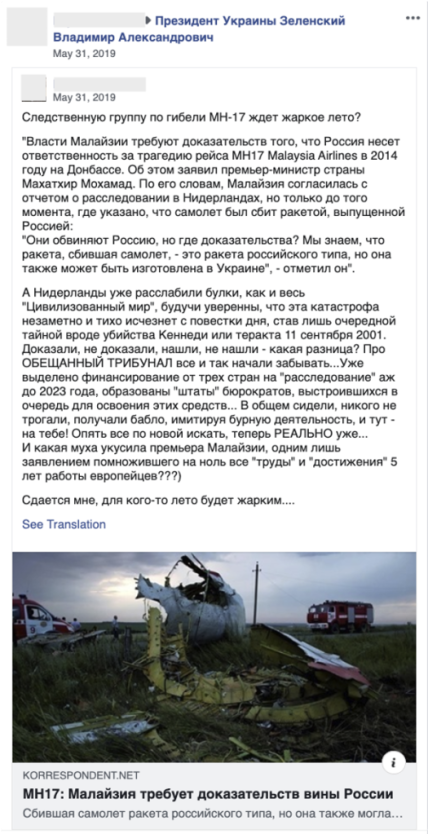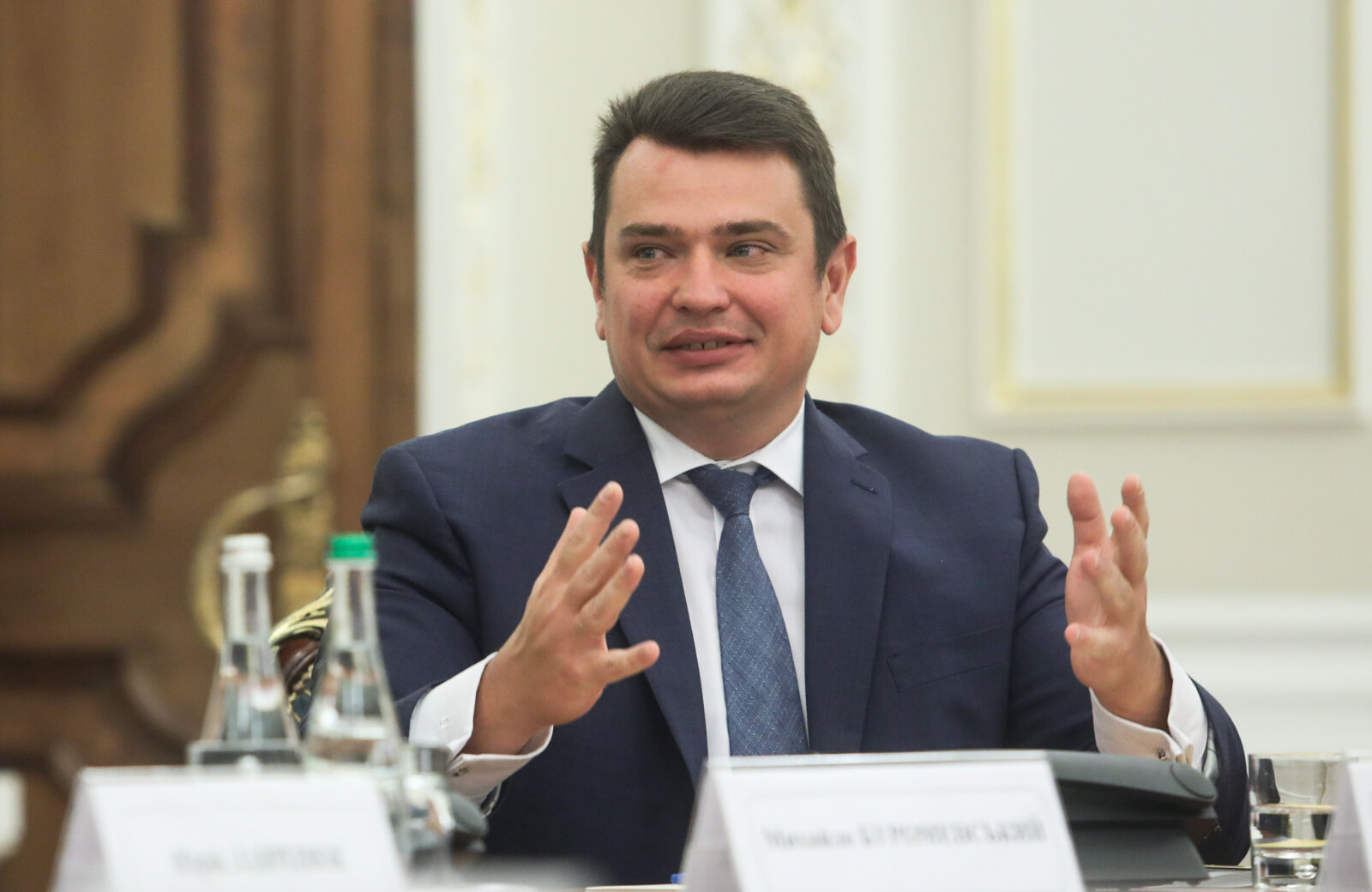The Obama Administration found itself in “uncharted territory” as the scope of Russian meddling in the 2016 elections became clear to senior officials, a report issued on Thursday by the Senate Intelligence Committee found.
The panel — led by Sens. Richard Burr (R-NC) and Mark Warner (D-VA) — found that the U.S. government “was not well-postured to counter Russian election interference activity with a full range of readily-available policy options.”
The Obama administration issued “high-level warnings of potential retaliation” to Moscow, “but tempered its response over concerns about appearing to act politically on behalf of one candidate, undermining public confidence in the election, and provoking additional Russian actions.”
The report marks the third volume in the Senate Intelligence Committee’s years-long investigation of Russia’s interference campaign in the 2016 election. Previous reports have focused on the use of social media manipulation by Russia in 2016 and its attacks on local and state election infrastructure.
Some sections of the report remain partially or totally redacted, but nonetheless a picture emerges of the uncertainty and contradictions the administration faced in figuring out how to address Russia’s attack on the U.S. elections.
Even as the U.S. government was well aware of Moscow’s decades-long campaigns against the U.S., the 2016 attack was “unprecedented” in “scale and sophistication,” Thursday’s report said, and Russia’s weaponization of the information it hacked from Democrats was unlike anything government officials had ever seen before.
Some top administration officials first learned that the DNC had been hacked and had emails stolen when it was reported by the Washington Post in June 2016.
“In fact, had the DNC not approached and cooperated with the Washington Post to publish a June 14, 2016, article, senior administration leadership probably would not have been aware of the issue until later, in all likelihood when WikiLeaks, Guccifer 2.0, and DCLeaks began to publish emails taken from the DNC’s network,” the report reads.
The administration faced several constraints as it grappled with how to respond to the attack, according to the report. One was the concern that public warnings would help Russia achieve its very goals, by sowing fear and undermining confidence in the election.
Another, however, was the fear of giving the appearance that the White House was “siding with one candidate,” particularly as then-candidate Donald Trump was amping up his rhetoric about the election being “rigged” against him, officials noted to the committee.
The report cites then-Homeland Security Adviser Lisa Monaco recalling Senate Majority Leader Mitch McConnell (R-KY) raising similar concerns.
“[Y]ou security people should be careful that you’re not getting used,” the report cites Monaco as remembering of McConnell’s reaction to the prospect of a public, bipartisan statement on the interference campaign.
Monaco, the report states, interpreted this as meaning that intelligence on Russia’s interference efforts “was being inflated or used for partisan ends.”
Sen. Burr, at a committee hearing cited in the report, phrased McConnell’s concern as “Would this not contribute to Russia’s efforts at creating concerns about our election process, if the leadership of the Congress put that letter out?”
Separate reporting has indicated that McConnell told Obama in a September 2016 meeting about Russian interference that he would interpret a public warning about the matter as an attempt to interfere in the election, and not sign on to a bipartisan announcement about the threat.
The report recounts several direct warnings Obama officials delivered to Moscow regarding the attack, including an in-person confrontation between President Obama and Vladimir Putin at a September 2016 G20 summit in China.
A paragraph titled “Secretary Kerry and Minister Lavrov” in that section is completely redacted. In Obama’s warning to Putin, which was crafted carefully with a small group of principals, the potential consequences were “purposely left ambiguous by the President in an effort to intimate that a range of diplomatic, economic, [redacted] options were available to use in response to Russia.”
Putin gave Obama an “energetic” and “non-substantive” denial, then-Ambassador Susan Rice told the committee, based on Obama’s account of the conversation to her.
CIA Director John Brennan also brought up the interference on an August call with Russian FSB head Alexander Bortnikov, as did Rice, with a phone call to then-Ambassador Sergey Kislyak and a written message from Obama that was passed through her to Putin.
“The written message was a more specific warning that contained ‘the kind of consequences that he could anticipate would be powerfully impactful to their economy and far exceed anything that he had seen to date,’” the report said, quoting Rice.
The administration also used a cyber hotline to deliver warnings to Russia, where at least eight messages — four on each side — were exchanged, but only three of them carrying substantive information, according to the committee.
At one point, the Russian government denied “technical information” that the Obama administration supplied about the interference campaign. In that message, the report reads, Moscow said that “it too had been victim to some of the same cyber activity.”
The report recounts the administration’s efforts to inform stakeholders about the threat to election infrastructure and the blowback the administration experience when DHS floated designating election systems as critical infrastructure (a designation it ultimately made in Jan. 2017).
Former DHS Secretary Jeh Johnson told the committee that the move in October to release a public statement attributing the attacks to Russia was “a very, very big decision.” The statement was ultimately overshadowed by the revelation of the Trump Access Hollywood tape and the dump of another tranche of emails hacked from Democrats.)
Administration officials told the committee that at the time they believed that their warnings to Moscow — and particularly the Oct. 7 warning from Obama to Putin — had had a deterrent effect. However the report identified three events after that warning that showed Russia’s cyber-activity continued: the scanning Russian actors did of state and local election websites to identify vulnerabilities; spearfishing emails sent to Florida election officials and organizations; and a third episode that was completely redacted in the report.
After the election, the administration felt less constrained in how to punish Russia now that it now longer had to worry about provoking further meddling, according to the report. Among the post-election responses were the expulsion of Russian diplomats, the levy of additional sanctions and the designation by DHS of election infrastructure as critical infrastructure. Much of this section of the report is also redacted.
The White House also considered whether to impose more punitive economic sanctions that would have been severe enough to “incur significant blowback” to the U.S. and Europe.
That path was not taken, in part because of the blowback, and in part because of “uncertainty about the future Russia policy of the incoming administration” and the possibility of wavering European allies.
In an addendum to the report, Sens. Marco Rubio (R-FL), Tom Cotton (R-AR), John Cornyn (R-TX), Ben Sasse (R-NE), and James Risch (R-ID) criticized the Obama administration for being “inept.”
“Hollow threats and slow, hapless responses from the administration translated to perceived weakness on the part of the U.S., and Putin exploited that weakness with impunity,” the addendum reads. “It appears to us that either the Obama administration was woefully unprepared to address a known and ongoing national security threat, or even worse, that the administration did not take the threat seriously.
The committee said it was “appalling” that senior Obama administration officials didn’t recognize Russia’s malign activities until late July, despite intelligence pointing in that direction.
Sen. Wyden also filed an attachment to the report, bemoaning “a political environment in which one candidate was questioning the legitimacy of the election with falsehoods (“large scale voter fraud”)” as “a reason to keep the public in the dark about real threats to America’s democracy.”
He criticized the report for failing to provide detailed information about the September 2016 meeting between top Obama administration officials and Senate leaders as the White House pressed for a bipartisan statement on the interference campaign.
“As the report describes, the Obama Administration believed that any public statements about Russian interference it might make would be seen as partisan, a concern that would be mitigated if members of Congress were to publicly support the available intelligence,” Wyden wrote. “I believe that warning the public about a foreign influence campaign should not depend on the support of both parties, particularly when one of the parties stands to gain politically from that campaign. But that is how the Obama Administration felt.”

Read more here for more fake news sampling noted by Facebook.






 Andrii Telizhenko
Andrii Telizhenko